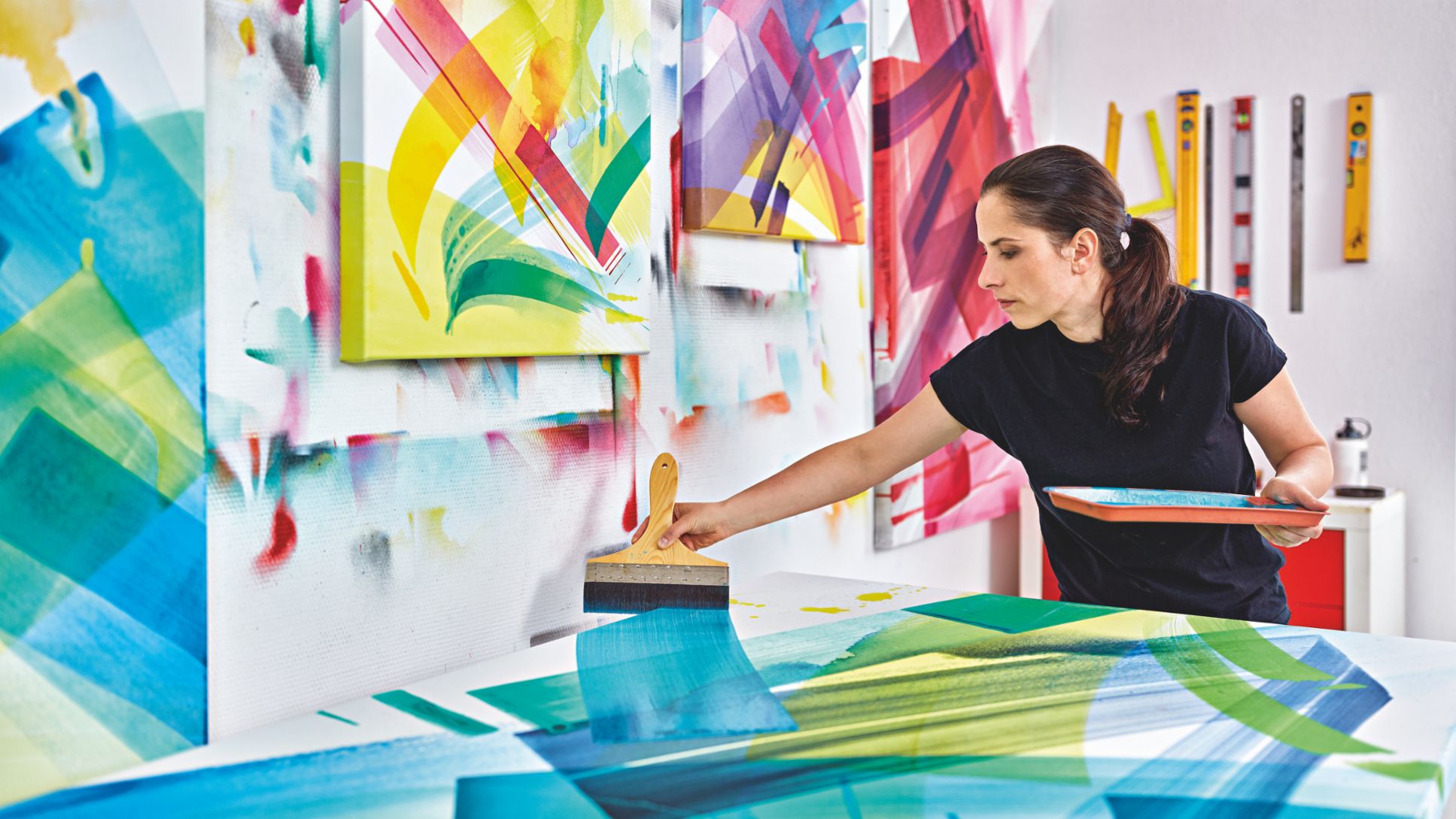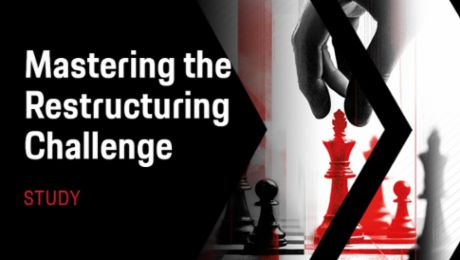Are you familiar with AC / DC, the Australian rock band? Highway to Hell ? Its members took the stage wearing school uniforms. With a nod to tradition. As a boy in the 1960s, lead guitarist Angus Young had been in a band with some friends. “I would get home from school, still in my uniform, and go straight into the garage. I could hardly wait to make music,” he says. No time to change clothes. That early passion turned into the world brand of AC / DC.
The garage. Parents turn that space over to their kids of a certain age. There’s not too much their offspring can destroy in there. Safe within those windowless walls, the kids feel undisturbed and unobserved. They can try things out, and make noise. A garage offers a few square meters of freedom.
The first Porsche and Volkswagen were made in garages
The garage also has quite a tradition in business. Boeing, Disney, Harley-Davidson—many big names started off in that small space, for a variety of reasons. Even the first Porsche and Volkswagen were made in garages. There’s something about a garage that invites people to tinker. And they’re also closely associated with the still young history of digitization and developments in Silicon Valley. Young people who don’t have much money but do have valuable ideas start businesses in garages. That’s supposedly also how Apple and Google got started.
Now things work the other way around. Many companies that can look back on decades of success are realizing that the innovative energy in their high-rise office buildings is on the wane. If structures are set in stone, employees hardly dare to propose improvements from the bottom up. So established companies are attempting to provide space for creativity, to stimulate curiosity at all levels, and to promote the desire to experiment. And because the atmosphere at company headquarters tends to be less than optimal for such pursuits, garages or labs are starting to appear again—laboratories where ideas can be tried out, and where they are also allowed to fail.
Comfortable clothes make it easier to think
True, one won’t see school uniforms such as those worn by AC / DC in these modern-day garages. But instead of the office dress code of yore, a new set of fashion guidelines encourages attire such as hoodies. Comfortable clothes make it easier to think. For conferences the teams lounge on colorful cushions and stackable Euro pallets. If even that seems too staid, they can make furniture of a studied idiosyncratic bent out of scrap wood. Openness applies not only to the space itself. Secrecy is passé. In the obligatory kitchen, ideas are kicked around and spun further over organic soft drinks. The power of the community is what counts, not the ambition of the lone wolf.
Berlin has the highest density of such labs in Germany. More than 80 of them were registered in early 2017, including the Porsche Digital Lab. But no one knows the exact number. Why should there be so many in Berlin, of all places? The capital city suffers from a weak economy. Corporations have their headquarters elsewhere in the country. But the city is hip, and has strong cultural and media scenes. It is tolerant, worldly, and never sleeps. At the bakeries and newspaper stands in some of its neighborhoods you’ll hear more English than German. Berlin attracts young people from around the world who are eager to innovate. Ever more companies are realizing this and seeking to establish a presence in the city. If they don’t open their own “garage,” they simply use a “lab service” and rent space amongst one of the restless and creative teams.
Maybe Berlin has discovered its forte. Far enough away from the big corporations and the establishment. Silicon Valley was once like that. And made something great out of it.
Info
Photo: Porsche Consulting




